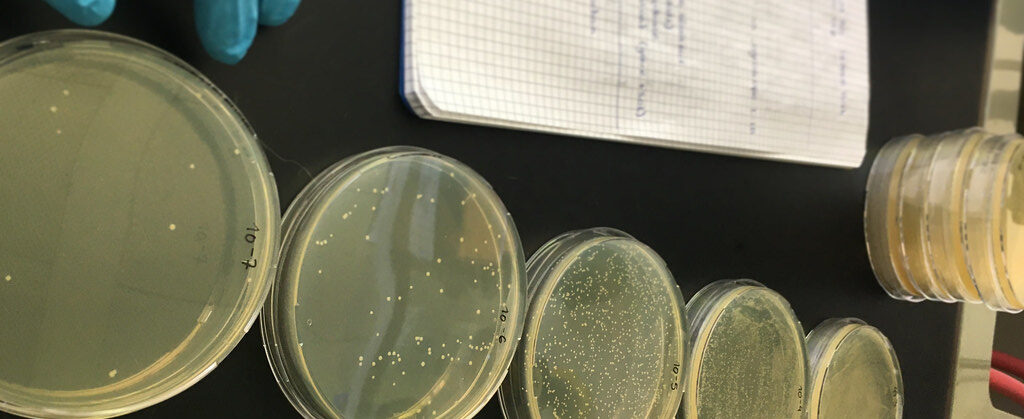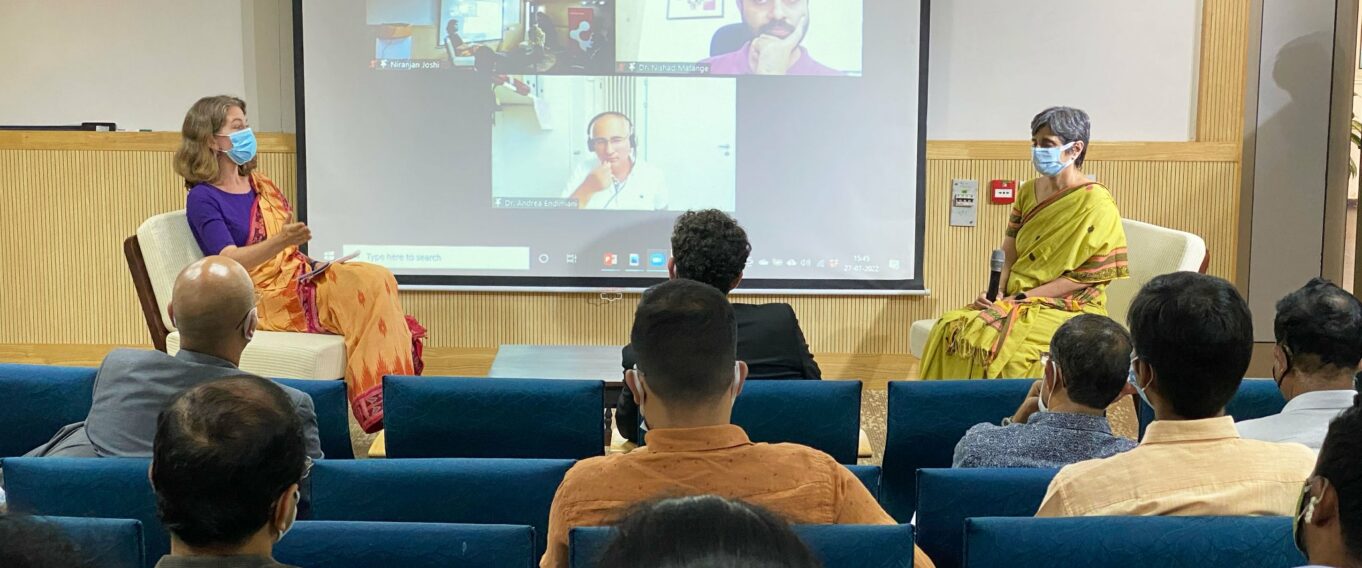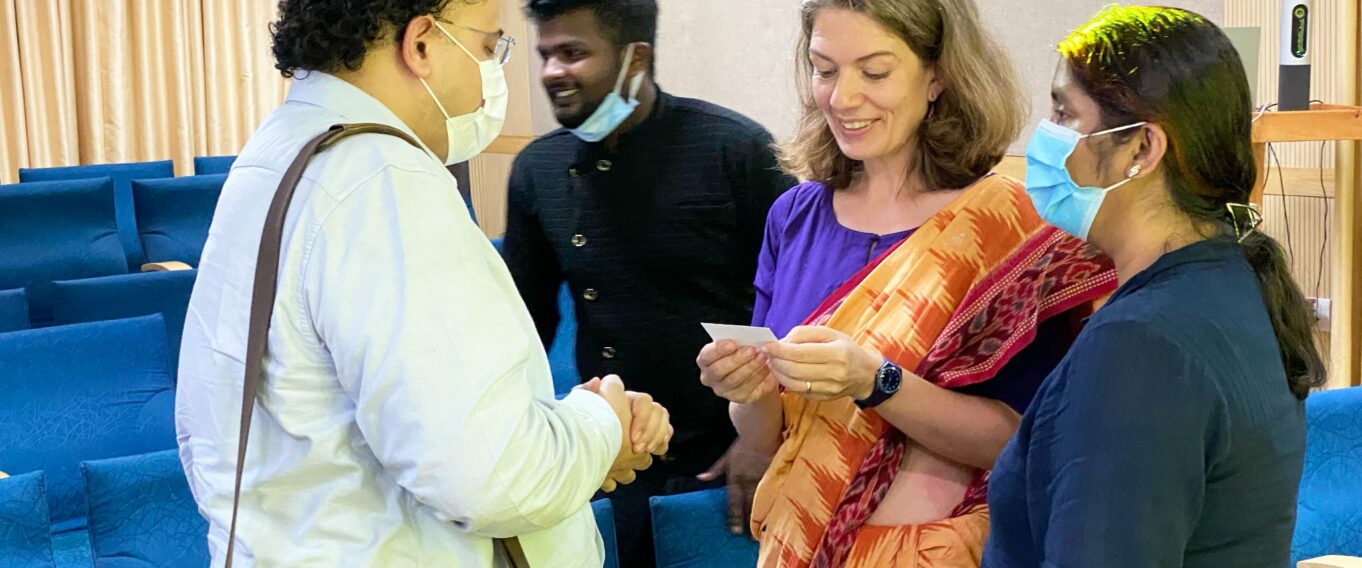
Imagine 10 years from now you are diagnosed with a urinary tract infection. No problem you would think. You will take a course of antibiotics and you should be good. The reality is that 10 years from now, there is a good chance that some of those disease-causing bacteria will have bumped up their defense to existing antibiotics to an extent that many infections that are treatable today will have a much worse outcome tomorrow. There is also a good chance that it won’t matter whether you are in Switzerland or India, it can and will happen anywhere.
Infections from drug-resistant bacteria such as E.coli, Staphylococcus aureus and Klebsiella pneumonia amongst others are now a leading global killer.
- Henry B Skinner, CEO of AMR action fund, Harvard Public Health
Antimicrobial resistances, in short AMR, refer to the ability of bacteria to defy antibiotics meant to destroy them. The obvious consequence is that getting rid of pathogenic bacteria – e.g. bacteria that cause diseases like tuberculosis (TB), pneumonia, urinary tract infections (UTIs) and many more – will become much harder. In other words, a lot more people will die of bacterial infections that were once curable.
A fact that is easily overlooked is that antibiotics also play a significant role in modern medicine’s infrastructure. What do I mean by that? The outcome of everyday surgeries highly depends on prophylactic use of and the effectiveness of antibiotics.
Lastly, like any other communicable diseases, AMR is agnostic to country borders. Resistance genes might evolve locally, but travel globally, hitchhiking in human bodies and within the global food supply chain, making themselves home wherever they find favorable conditions. This global connectedness is precisely why we chose to fuel efforts and strengthen research connections and innovation between Switzerland and India in the area of AMR.

India is a central piece in combating AMR.
It has one of the highest rates of existing and emerging antibiotic resistances, is one of the highest consumers of antibiotics and produces most of the antibiotics (in quantity) for the world. Imagine India would shut down export of antibiotics like they stopped Covid vaccine exports. Quite scary for the rest of the world, isn’t it? Well, it does not look like this will be the case anytime in the near future, I just wanted to regain your attention.
Our recent conversation with Dr. Gagandeep Kang, CMC Vellore, Dr. Andrea Endimiani, University of Bern and Dr. Nishad Matange, IISER Pune discussed differences but also discovered many commonalities between Switzerland and India with respect to AMR.
Let us start with some of the differences.
The burden of multi drug resistances (MDR) is much higher in India and neighboring countries of Bangladesh in Pakistan as compared to Switzerland. According to Professor Endimiani Switzerland fares even better than its European neighbors. Switzerland has established good tracking mechanisms and databases that are publicly available and allow much better prevention of MDR diffusion. This is something India has well intended to do by setting up the Antimicrobial Resistance Surveillance and Research Network (AMRSN) in 2013. However, while the data is annually compiled in the form of a report it is not easy to use for practitioners and researchers, nor does it reflect real time developments and is likely to be incomplete.
A second difference is the level of compliance to best practice and practice of antibiotic stewardship. It is not a secret that antibiotics in India are used a lot more indiscriminately as compared to Switzerland. Let’s be honest, who amongst our Indian readers has not at least once bought antibiotics over the counter?
That brings us to the commonalities.
The need for better training of medical practitioners. Better integration of knowledge on best practices with respect to infectious diseases, including the understanding of drivers of resistances and the appropriate use of antibiotics is crucial and this seems to be true for Switzerland and India.
Another commonality all speakers agreed upon was the need for data sharing, e.g. in the form of well maintained and open access databases to be able to react quickly and get a good overview of the status quo.
Lastly, and this is a point I’d like to dwell a bit upon, the need to collaborate outside of domain expertise on all scales, the removal of hierarchies and profession based ego driven decision making.
Scales can be as small as a neurosurgeon and a GP not consulting each other for treatment protocols for common patients or patients with similar case histories or symptoms. It can be hospital managers and implementing staff not communicating their needs and wants best.
It can be researchers not being in touch with the reality clinicians face and vice versa. It can be R&D start ups and diagnostic centres not being able to connect sufficiently with fundamental research or practitioners. The cost of poor communication, lack of awareness of the full ecosystem including funding and partners schemes can be detrimental.
And it even goes beyond this. As recently highlighted by the Bloomsberg Asia edition, Urban planning and especially planning of housing needs to be looked at holistically. Architects, Doctors and planners need to find spaces and opportunities to discuss effective interventions to provide a future that improves the life of as many people as possible.

Building a network to succeed
This is exactly where Swissnex in India alongside its Indian and Swiss domain experts comes into play. Over the next years we are looking to build a network of experts, innovators and change makers to create spaces and opportunities to work together, exchange knowledge, and drive ideas for faster advances in combating AMR.
Swissnex is set to host an AMR panel at the Bacterial Morphogenesis, Survival and Virulence Conference in Feb 2023, watch our channels for more.
It is because of cross-border health threats that we internationally need to work together on our global health security agendas, in general and in particular on increasing our pandemic prevention, preparedness and response.
- Marcel Floor, Counsellor for Health, Welfare and Sport, Embassy of the Netherlands in India